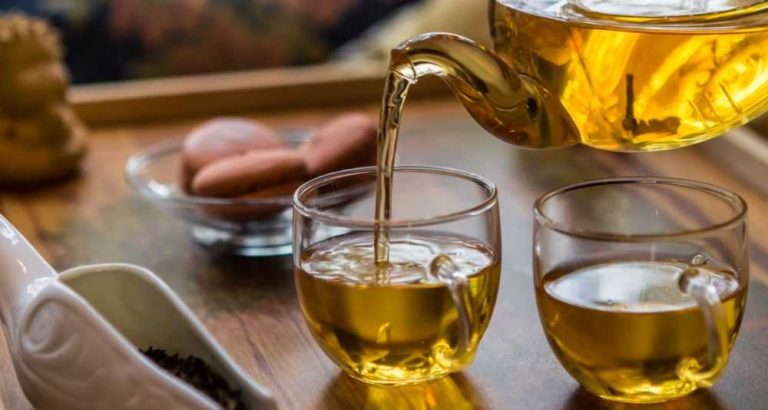Exploitation, poverty, environmental destruction: That is the true price for our tea enjoyment – and others pay it. We show why responsible consumers should spend their money on fair tea instead of cheap tea.
Strictly speaking, “tea” is only the infusion made from the leaves of the tea plant, i.e. black tea, green tea, white tea and oolong. So the following post is about that. Because especially with the tea plant, the cultivation and processing conditions are often criticized.
The reasons are of a geographical and economic nature: Today, tea comes mainly from China, India, Sri Lanka, Kenya and Vietnam (see FAO) – countries in which social and environmental standards are comparatively low or compliance is rarely monitored. The tea market is dominated by a few large corporations, in particular Unilever, the Tata Group and Associated British Foods. This gives these companies a lot of power, for example to enforce their ideas about prices and production conditions.
Tea often means exploitation and poverty

A prerequisite for employees to be able to protect their interests against such powerful corporations is that they can organize themselves. In a study, the Catholic aid organization Misereor writes that on many Asian and African tea plantations, employee representatives such as unions and works councils are being obstructed – in principle not a rare phenomenon in the plantation business. In 2019, however, Oxfam did report trade union activity in the Assam region of India.
Both organizations and a few others also report on diverse and widespread forms of discrimination on tea plantations, abuses of any kind do not seem to be uncommon.
There are hardly any living wages in the tea industry: the wages of plantation workers are often below the national minimum wage. Oxfam and the Rosa-Luxemburg-Foundation mention wages of less than 2 euros per day in different regions of India.
According to various research, there are usually services on the tea plantations that plantation companies agree with their employees, such as medical care, accommodation and food. But these are often deducted from wages, so that there is hardly any money left to live on. In addition, research by NGOs and journalists consistently shows that the shelter and food provided is inadequate.
All three organizations mentioned denounce the catastrophic nutritional situation of tea plantation workers. This is also a consequence of the practice of withholding wages under various pretexts. Many employees on tea plantations are therefore undernourished or malnourished, and an alarmingly large proportion of their children are physically underdeveloped.
Nobody likes it: poison in tea
On large tea plantations, the tea is harvested all year round. Those responsible spray plenty of pesticides to combat pests and optimize yields. Soil, water, biodiversity and the health of the plantation workers suffer from the chemicals. We consumers in Europe can also taste the rampant use of pesticides: Test institutes regularly find high levels of pesticides in tea samples.
Greenpeace India, for example, found residues of at least one pesticide in 94 percent of the tea samples examined in 2014, and even more than ten different pesticides in 60 percent. However, pesticides in our food are not necessarily harmless: some have been linked to various health problems such as cancer, hormonal imbalances and fertility disorders.
What to do?

So far, so sad. If you don’t want to let the problems surrounding the cultivation of the tea plant spoil your enjoyment of tea, you can definitely do something:
Buy organic tea to reduce the risk of exposure to pesticides. The organic certification prohibits the use of dangerous sprays and fertilizers. With the purchase, you strengthen organic agriculture in the countries of origin and contribute to reducing the use of poison.
Buy fair trade, organic tea. This is the best way to combat exploitative working conditions. However, it is not easy to make a concrete recommendation here, because in addition to the well-known Fairtrade seal, there are a variety of initiatives.

